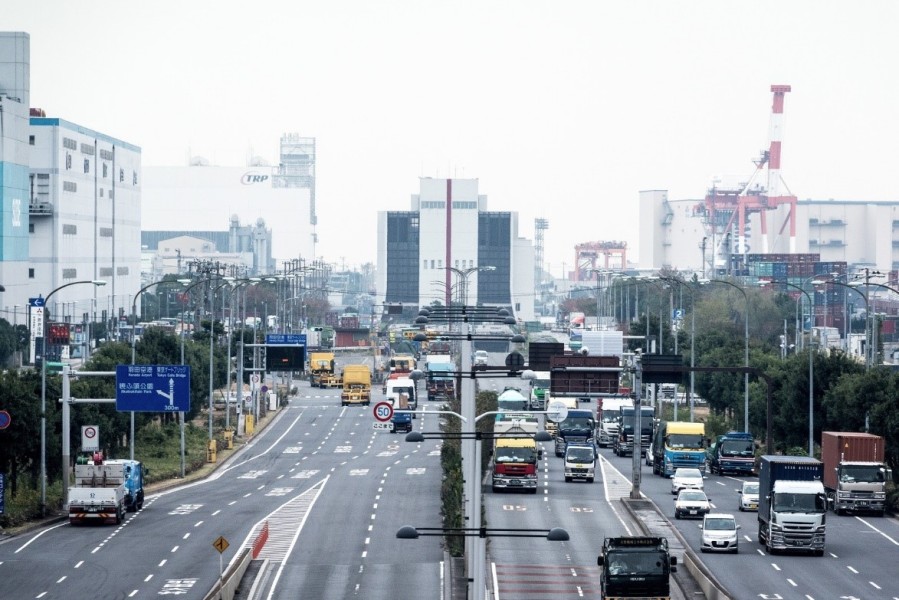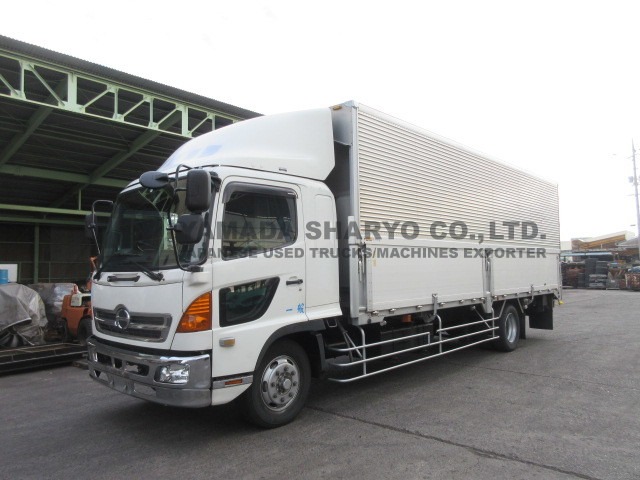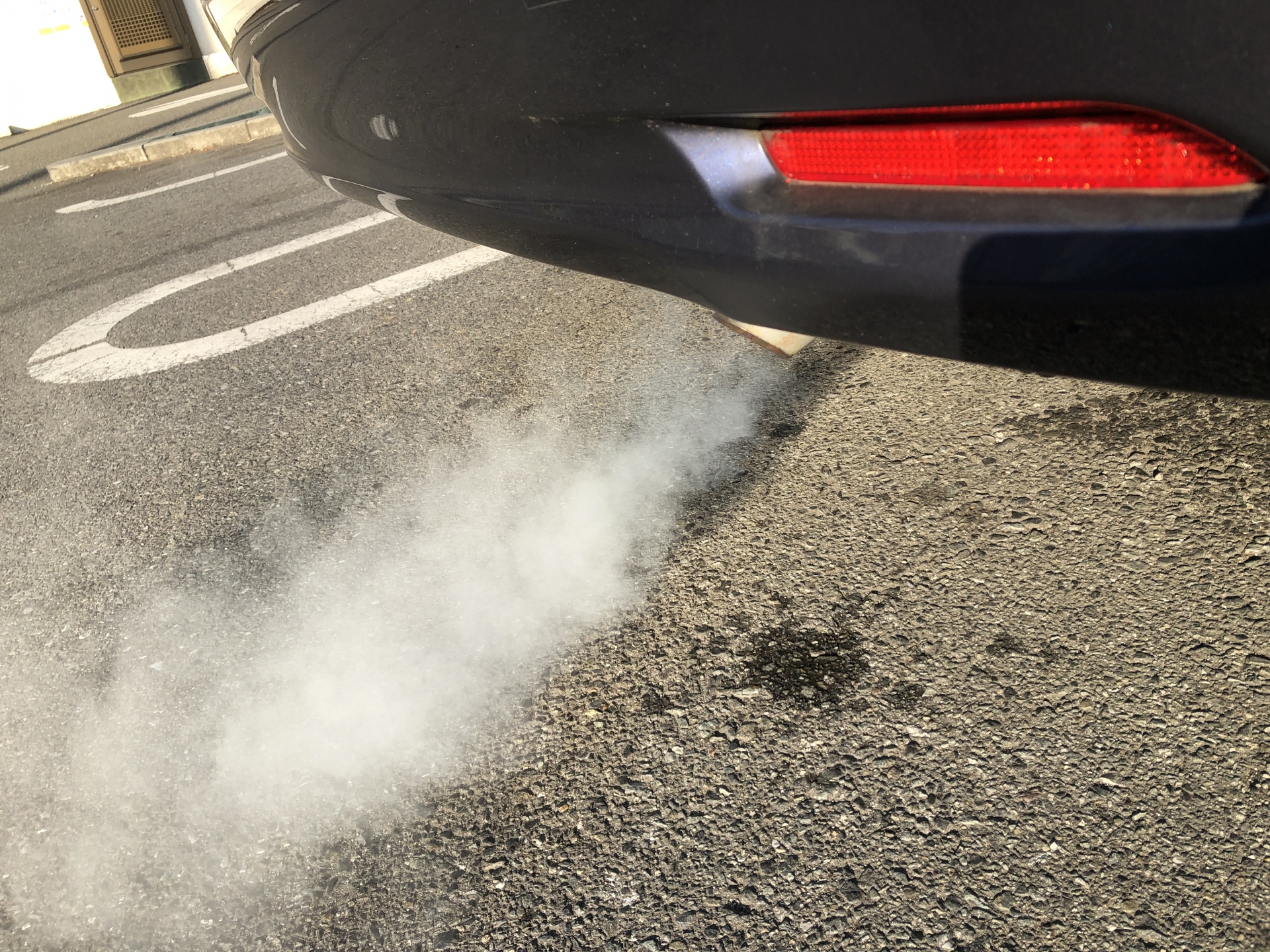BLOG
2019.11.08 update
Are trucks environment-unfriendly?
Do you think it is common for a truck with a diesel engine to puff out black smoke as it runs?
When diesel fuel is not completely burned in the cylinder, black smoke comes out. As we know, black smoke is soot, but researchers have found that this black smoke contains floating particulate material, PM in recent studies. PM is a major cause of air pollution that enters the body by breathing and adheres to the nose, throat, trachea, lungs, etc. and causes diseases such as chronic bronchitis and emphysema.

Regulations on diesel engines started with reducing the black smoke. In order to reduce the black smoke, we inject a small amount of fuel with high pressure to burn it completely. However, a new problem occurred from high pressure injection.
NOx (Nitrogen oxides) is produced by nitrogen and oxygen under high temperature and pressure. NOx is not included in factory smoke, but is generated mainly from automobile exhaust gas, causing photochemical smog and acid rain.
Although diesel engines once generated these two air pollutants (PM & NOx), emission regulations have been gradually implemented since the early 1970s when air pollution became a serious problem. Now the exhaust gas from the diesel engine has become the same level as gasoline engines by installing a device that reduces PM and NOx separately.

Urea water system to reduce NOx
Car manufacturers in Japan are developing technology to reduce NOx and PM. Mitsubishi Fuso uses BlueTec, which was jointly developed with its parent company Daimler.
When the gas discharged from the engine passes through DPF (Diesel particulate filter), combustibles in PM is burned by the oxidation catalyst in DPF, then PM is collected and removed by the ceramic filter.
The exhaust gas is then sent to the BlueTec exhaust aftertreatment device which includes a selective catalytic reduction system. At that time, urea solution water called Adblue is added and NOx is decomposed into nitrogen and water and then the NOx is detoxified.
Adblue is a registered trademark of the German Automobile Manufacturers Association. It is consumed at a rate of about 1.0 to 2.5% of fuel. Currently, we have access to Adblue in all over Japan, including gas stations, and other supply points which are all expanding.
NOx reduction systems using urea water are becoming mainstream, in addition to Mitsubishi Fuso, UD Trucks and Hino Motors also use urea systems that incorporate their own technologies.
Many diesel cars registered after September 2015 use AdBlue to reduce emissions. In general, a Euro 6-compliant diesel car is likely to use AdBlue technology.
Would you like to buy an environment-friendly truck? Japanese truck is your best choice!
Click here to check our new stocks!
https://yamada-co.jp/en/stock/detail/26860
KL-FE1JPEG
FOB: $9,135

---------------------------------------------------------------
Japanese Used Trucks & Machinery Exporter
Yamada Sharyo Co., Ltd.
Website / Contact Us / About Us
Search Trucks / Search Machinery
---------------------------------------------------------------
- LATEST ARTICLES
-
-

2022.04.05
Mitsubishi Fuso Truck and Bus Corporation Introduces New "Euro 4" Compliant Lineup to Indonesian Market
-

2022.03.22
We Opened Facebook Page and Instagram!
-

2022.03.08
Recent Best Sell!
-

2022.02.22
Japanese made excavator brand ‘YANMAR’
-

2022.01.05
Special Announcement ~AUCTION & EXPORT SERVICE STARTS!~
-
- CATEGORY
- ARCHIVES
-
- 2022-04(1)
- 2022-02(1)
- 2022-03(2)
- 2022-01(1)
- 2021-01(2)
- 2021-06(2)
- 2021-03(1)
- 2021-09(1)
- 2021-07(2)
- 2021-08(1)
- 2021-12(4)
- 2021-11(1)
- 2021-02(2)
- 2021-05(3)
- 2021-10(2)
- 2021-04(3)
- 2020-04(8)
- 2020-02(4)
- 2020-01(4)
- 2020-07(4)
- 2020-05(3)
- 2020-12(2)
- 2020-08(3)
- 2020-10(3)
- 2020-06(6)
- 2020-09(3)
- 2020-03(5)
- 2020-11(2)
- 2019-01(3)
- 2019-12(4)
- 2019-08(3)
- 2019-11(5)
- 2019-04(7)
- 2019-02(4)
- 2019-05(4)
- 2019-06(4)
- 2019-07(3)
- 2019-09(4)
- 2019-10(4)
- 2019-03(3)
- 2018-02(4)
- 2018-05(4)
- 2018-06(7)
- 2018-10(4)
- 2018-07(4)
- 2018-11(5)
- 2018-09(4)
- 2018-08(4)
- 2018-03(5)
- 2018-12(3)
- 2018-04(6)
- 2018-01(4)
- 2017-12(8)








